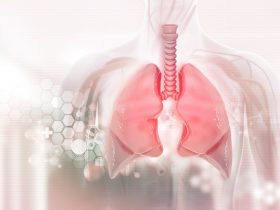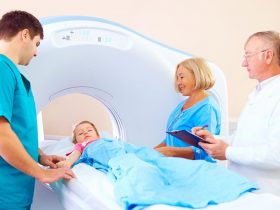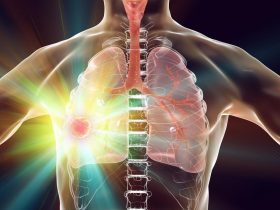Improvement observed in detection of actionable lung nodules with no increase in false-referral rates
By Elana Gotkine HealthDay Reporter
FRIDAY, Feb. 10, 2023 (HealthDay News) — Artificial intelligence (AI)-based computer-aided detection (CAD) software improves the detection of actionable lung nodules on chest radiographs, without increased false-referral rates, according to a study published online Feb. 7 in Radiology.
Ju Gang Nam, M.D., Ph.D., from the Artificial Intelligence Collaborative Network at the Seoul National University Hospital and College of Medicine in South Korea, and colleagues examined whether commercial AI-based CAD software can improve the detection rate of actionable lung nodules on chest radiographs in a single-center study. Participants who underwent chest radiography between July 2020 and December 2021 were enrolled and randomly assigned into an AI group and non-AI (control) group (5,238 to each group). Each radiograph was interpreted by one of three radiologists with 13 to 36 years of experience.
The researchers found that the trial met the predefined primary outcome, with an improved detection rate of actionable nodules in the AI versus non-AI group (0.59 versus 0.25 percent; odds ratio, 2.4). For malignant lung nodules, the detection rate was higher in the AI than non-AI group (0.15 versus 0.0 percent). Similar false-referral rates were seen for the AI and non-AI groups (45.9 versus 56.0 percent); positive-report rates were also similar between the groups (2.3 versus 1.9 percent).
“The improved detection rate of actionable lung nodules with a similar false-referral rate suggests that using AI-based CAD may improve lung cancer diagnosis without imposing an additional radiation hazard,” the authors write.
Several authors disclosed financial ties to the medical device industry.
Copyright © 2023 HealthDay. All rights reserved.







